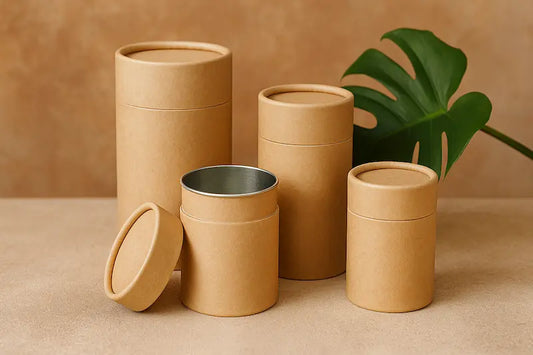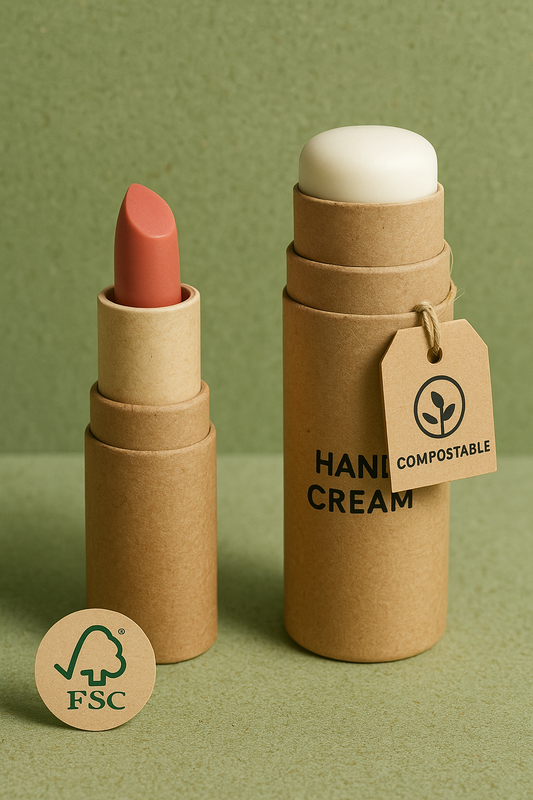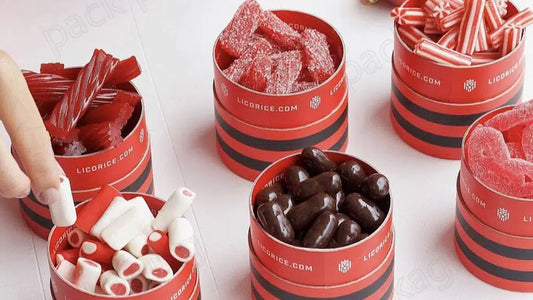The Evolution and Importance of Secondary Packaging
Aktie
Secondary packaging plays a critical role in the logistics and marketing of products. Unlike primary packaging, which directly contains the product, secondary packaging surrounds this primary package and often several primary packages, providing additional protection, enhancing presentation, and facilitating easier handling during transport and storage. The evolution of secondary packaging reflects advancements in material science, consumer preferences, and sustainability considerations, making it a dynamic and essential aspect of modern commerce.
What is Secondary Packaging
Secondary packaging serves as a vital layer between the primary packaging and the external environment. It is crucial for product protection during transportation, ensuring that items reach consumers in optimal condition. Moreover, it enhances the product's presentation, making it more attractive on retail shelves, and plays a significant role in branding and marketing efforts.
The Role of Secondary Packaging
Protection and Presentation
The primary role of secondary packaging is to protect products from damage during transit and storage. This includes safeguarding against physical impacts, moisture, contamination, and other environmental hazards. Additionally, secondary packaging enhances the product's presentation, making it visually appealing and encouraging consumer purchases.
Branding and Marketing
Secondary packaging is a powerful tool for branding and marketing. It provides a canvas for companies to showcase their brand identity, convey important product information, and differentiate themselves from competitors. Effective packaging design can create a memorable unboxing experience that fosters brand loyalty and positive consumer perceptions.
Sustainability Considerations
Sustainability is increasingly important in packaging decisions. Secondary packaging must balance functionality with environmental impact. Sustainable practices include using recyclable or biodegradable materials, minimizing packaging waste, and optimizing design to reduce the carbon footprint. Companies like the Esytube are at the forefront of this movement, offering eco-friendly solutions that meet these criteria.
Types of Secondary Packaging
Overview of Common Secondary Packaging Solutions
Secondary packaging comes in various forms, including cardboard boxes, plastic containers, and shrink wraps. Each type offers different benefits in terms of protection, cost, and environmental impact. For instance, cardboard boxes are lightweight, cost-effective, and recyclable, while plastic containers provide superior protection against moisture and contaminants. And so does paper tube packaging, which is gaining popularity due to its versatility and sustainability. This type of packaging offers several advantages:
- Advantages of Paper Tube Secondary Packaging: Paper tubes are strong, lightweight, and eco-friendly. They provide excellent protection against physical damage and can be easily customized to different shapes and sizes.
- Versatility in Design and Functionality: Paper tubes can be tailored to suit various products, from cosmetics and food items to electronics and apparel. Their cylindrical shape is not only functional but also aesthetically pleasing, making them ideal for premium products.
Applications of Secondary Packaging
Secondary packaging is used across various industries, each with unique requirements:
- Food and Beverage: In the food and beverage industry, secondary packaging must ensure product safety and compliance with health regulations. It also plays a crucial role in maintaining the freshness and integrity of the product.
- Health and Beauty: Packaging in the health and beauty sector needs to reflect the brand's image and attract consumers. It often involves luxurious designs and materials that convey quality and exclusivity.
- Fashion and Apparel: For fashion and apparel, secondary packaging should protect delicate fabrics and accessories while enhancing the unboxing experience. It also serves as an extension of the brand's identity.
Designing Custom Secondary Packaging Solutions
Tailoring Packaging to Brand Identity
Custom secondary packaging solutions should be aligned with the brand's identity. This involves selecting colors, materials, and designs that reflect the brand's values and appeal to its target audience. Tailored packaging enhances brand recognition and creates a cohesive brand experience.
Incorporating Eco-Friendly Materials
Eco-friendly materials are essential for sustainable packaging. Companies should prioritize using recyclable, biodegradable, or compostable materials. For instance, paper tube packaging can be made from recycled paper, reducing environmental impact and appealing to eco-conscious consumers.
Collaborating with Clients for Unique Solutions
Successful packaging design often involves close collaboration between packaging companies and their clients. Understanding the client's needs, preferences, and product specifications is crucial for creating effective and unique packaging solutions that stand out in the market.
Benefits of Secondary Packaging for Businesses
Enhancing Product Visibility and Shelf Appeal
Secondary packaging significantly enhances product visibility and shelf appeal. Well-designed packaging attracts attention, highlights key product features, and communicates the brand's message effectively. This can lead to increased sales and brand loyalty.
Differentiating Products in a Competitive Market
In a crowded market, secondary packaging helps differentiate products from competitors. Unique packaging designs, innovative materials, and distinctive branding elements make a product stand out and create a memorable impression on consumers.
Streamlining Supply Chain Operations
Efficient secondary packaging can streamline supply chain operations by improving product handling, reducing damage rates, and optimizing storage space. This leads to cost savings and increased operational efficiency.
Sustainability in Secondary Packaging
Importance of Sustainable Practices
Sustainable practices in secondary packaging are vital for reducing environmental impact and meeting consumer demand for eco-friendly products. This includes using sustainable materials, minimizing waste, and designing for recyclability.
Role of Paper Tube Packaging in Eco-Friendly Solutions
Paper tube packaging is an excellent example of eco-friendly secondary packaging. It uses renewable resources, is easily recyclable, and has a lower environmental impact compared to plastic alternatives. Its use aligns with sustainable practices and appeals to environmentally conscious consumers.
Innovations in Sustainable Secondary Packaging
Innovations in sustainable packaging include developing new materials, improving recycling processes, and creating designs that reduce waste. For example, Esytube continually invests in research and development to create more sustainable and efficient packaging solutions.
Tips for Effective Secondary Packaging
Ensuring Functional Design and Durability
Effective secondary packaging must be functional and durable. It should protect the product, withstand handling and transport, and be easy to open and use. Testing different designs and materials ensures the packaging meets these criteria.
Leveraging Secondary Packaging for Brand Storytelling
Secondary packaging is an excellent medium for brand storytelling. It can convey the brand's history, values, and mission through design elements, text, and visuals. This creates a deeper connection with consumers and enhances brand loyalty.
Maximizing Efficiency in Production and Distribution
Maximizing efficiency in production and distribution involves designing packaging that is easy to produce, store, and transport. This includes optimizing packaging dimensions, reducing material usage, and ensuring compatibility with automated packaging systems.
Trustworthy Secondary Packaging Company
Secondary packaging is essential for product protection, branding, and sustainability. It plays a critical role in enhancing product visibility, differentiating products in the market, and streamlining supply chain operations.
For businesses looking to improve their secondary packaging, exploring paper tube packaging solutions is a worthwhile consideration. These solutions offer numerous benefits, including sustainability, versatility, and cost-effectiveness.
If you are interested in innovative and eco-friendly secondary packaging solutions, contact Esytube today. Our team of experts will work with you to create custom packaging that meets your specific needs and aligns with your brand's identity. Let us help you enhance your product's appeal and make a positive impact on the environment.
Cover designed by Freepik




